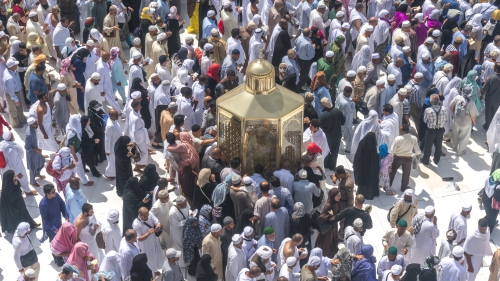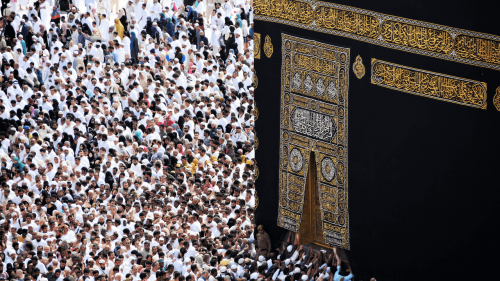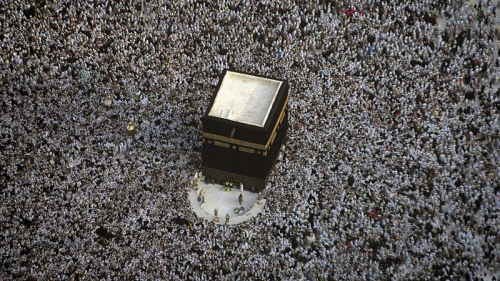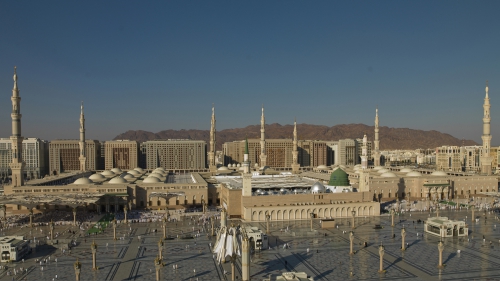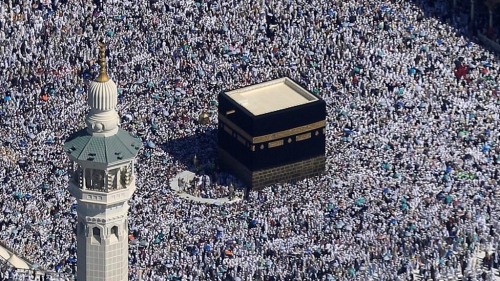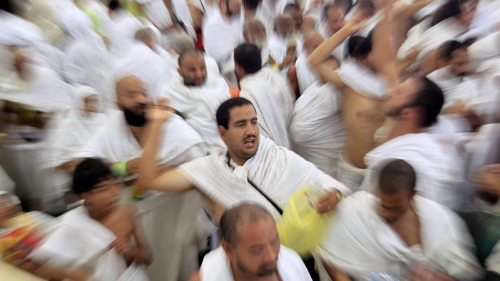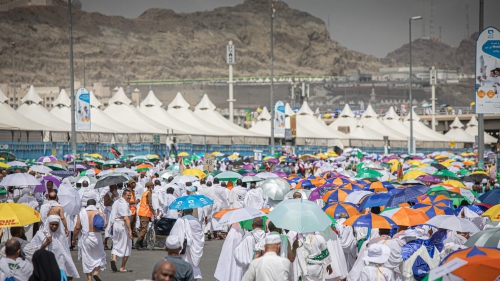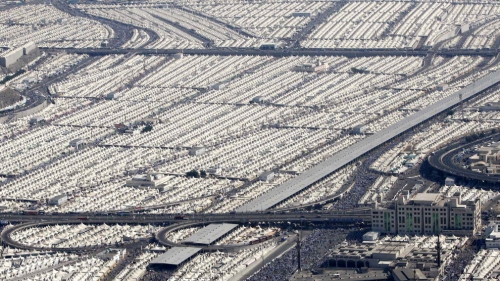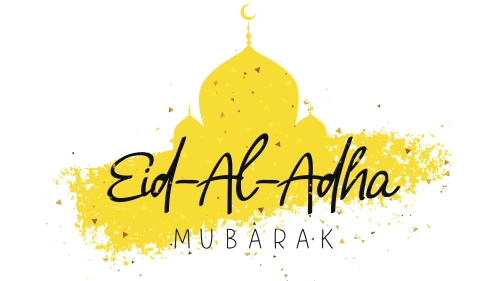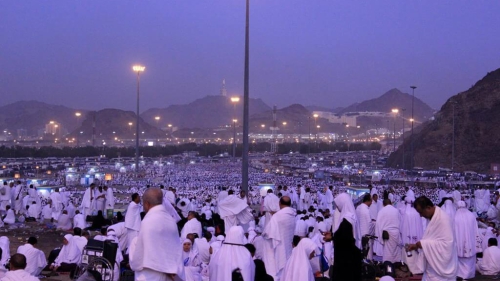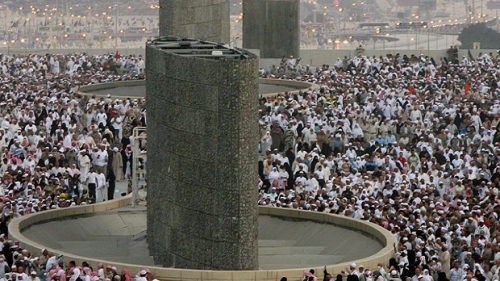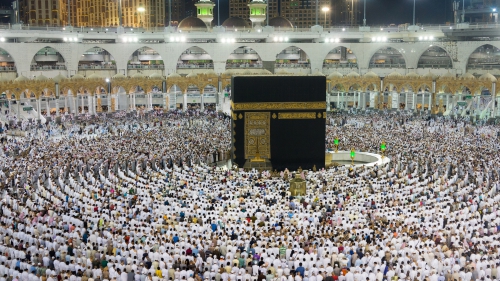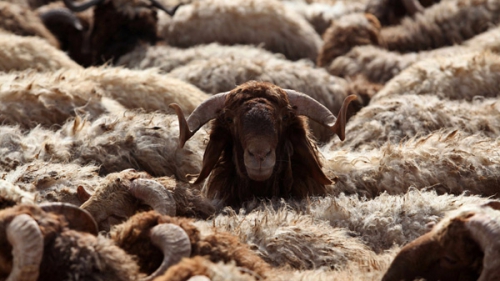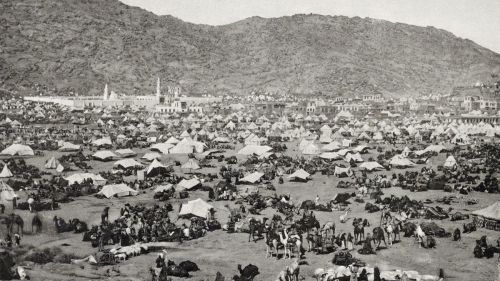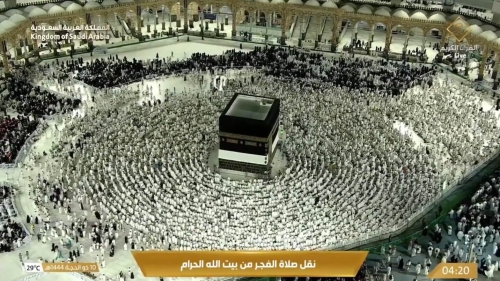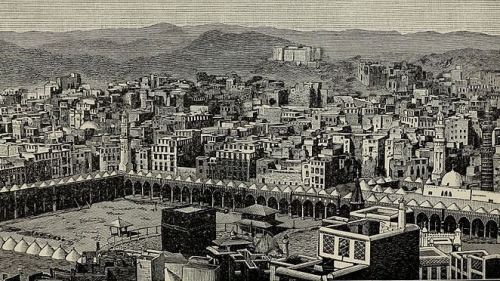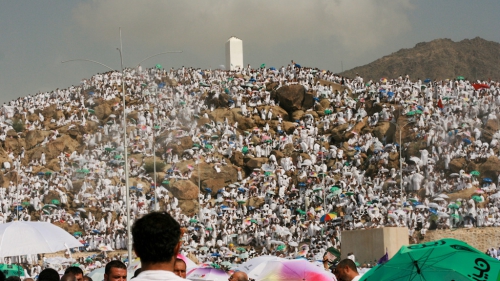Hajj and Eid-ul-Adha: Rituals and Beyond
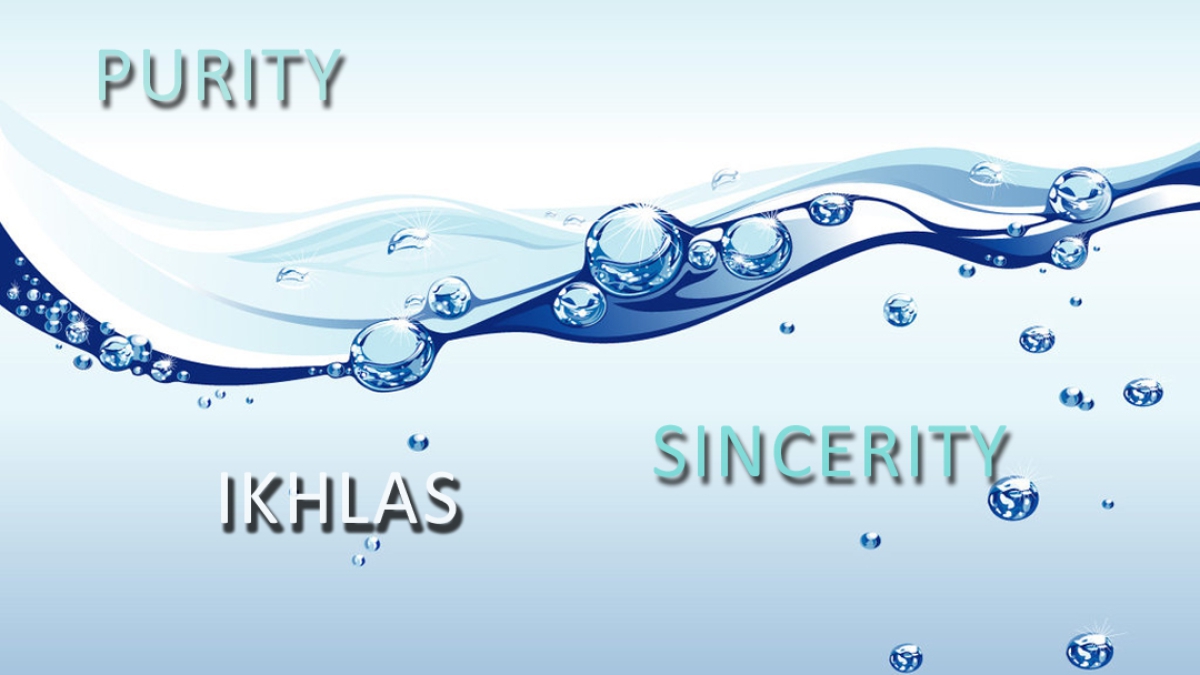
Whether we perform the manaasik/rituals of the Hajj like the tawaaf, or we acknowledge and honour the sha‘aa’ir-Allah/symbols of Allah by running the sa’yi between Safa and Marwa, or we engage in qurban/udhiyah/sacrificing …we note how rituals play a major role in the Hajj as well as in the festivities of ‘Eid.
Greeting and Embracing
On the day of ‘Eid, we engage in musafahah/shaking hands and mu’anaqah/ embracing each other. Handshaking is an ancient custom that perhaps originated as an act to demonstrate the absence of concealed weapons. This gesture has universally come to symbolize a mutual acknowledgment of courtesy, welcome, respect, trust, non-confrontation, and peace; all of this, collectively conveyed in a single human gesture of the handshake. When we say “Eid Mubarak” and embrace each other, we condense a vast range of meanings, a wide spectrum of emotion, notions of peaceful engagement, expression of congratulation, conveyance of affection… all into the span of a momentary act of embracing.
Ihraam & Tawaaf
As pilgrims, all hujjaaj dress the same and circumambulate the Ka’bah in unison; European and Asian, African and South American; modernists and traditionalists, sunni and shi’i, salafi and sufi, conservatives and generation next; old, young, and the middle aged; rich and poor, healthy and sick, male and female … absolutely no barrier. Hujjaaj do this without any distinction and without detachment in tawaaf, in sa’yi, at ‘Arafah … no separation whatsoever. What greater demonstration of unity could there be?
So, millions of Muslims perform tawaf around the Ka’aba which was originally built by our historical father Adam and rebuilt by Abraham and his son Ishmael (peace be upon them). These millions of Muslims through this ritual are transcending geographical, linguistic, cultural, ethnic, color, economic, and social barriers; they actually attest to the universality of Islam; and celebrate the diversity of our common humanity. Pilgrims return home enriched by this pluralistic and holistic manifestation of our inter-connectedness and they arrive at a new appreciation for our common origin from Adam and Hawa, and more aware of our being part of the millah of Ibrahim and the ummah of Muhammad (peace be upon them).
Qurban
When we reflect on the udhiyah/qurban/sacrifice made by both those who are on hajj and those of us who are non-pilgrims the world over; it is a preservation and continuation of the sunnah/tradition of Prophet Abraham. It reminds us of zhibhin 'azim/ the great act of sacrifice that Prophet Ibrahim and Isma`il were willing to do for the sake of the Almighty. [Qur’an As-Saffaat 37:107] The very notion of Qurbaan is from “qurb” meaning closeness to Allah.
The underlying message of udhiyah/qurban/ritual slaughter is not that of blood atonement, or seeking favor with Allah through an animal's death, but rather, an expression of submission and the willingness to share one's possessions and food with fellow human beings. Allah reminds us; It is neither the flesh nor the blood that reaches Allah but your piety that reaches Him. [Surah Al-Hajj 22:37]
Rituals Do Matter
We thus note that the reason rituals matter, and why they remain central to human activity. They allow humans to express shared sentiments of meaning and value beyond words. In Islam, these rituals are filled with higher meaning which provide a non-verbal communication that is incredibly versatile, which allows mutual recognition of the significance of a particular act or the deeper purpose of an important situation and a higher meaning that has spiritual significance.
Performance of these religious acts at prescribed times, at particular places, and in a specific manner where each act at each place has a purpose and serves as a reminder to the mindful, lesson to the heedful, an exhortation to the faithful, as instruction to the dutiful and a source of reflection for the wise.
Focus Not Only On Outward Acts
We live in a world where we tend to focus a lot on the superficial, on the apparent, the outward; while the inner dimensions of our actions and the higher purpose of why we do what we do, is often lost. The heart seems absent, and by heart I mean that confluence of the intellect, emotion and consciousness. In the Qur'an, the heart signifies the symbol of the spiritual dimension of the physical self, and that understanding by the heart is often ignored; “And most certainly have We destined for hellfire many of the invisible beings and men who have hearts with which they understand not.” [Surah al-A'raf - 7:179]
We do acts with our bodies and say with our tongues, but do we intend what we do with the sincerity of our hearts? Mirza Ghalib reminded us in Urdu;
Sar jukhane se namaze ada nahi hotee
Dil jukhana parta hai ‘ibadat ke liye
“Ritually bowing your head is not real prostration; true worship requires the heart to be submissive.”
Heart As the Essence
The presence of the heart is essential for a higher consciousness and as to why we do the acts and rituals that we do. Prophet Muhammad (pbuh) thus emphasized; “Your faith will not be correct, unless your heart is correct.” [Bukhari]. He often pointed to the heart as the locus of taqwa/piety; bringing to our attention that the heart is the essence, the axis of goodness and well-being within ourselves; “Allah judges us not by our physicality and our appearances but rather by our deeds that emanate from the sincerity of heart.” [Sahīh Muslim].
If the heart is heedless then our spirituality may be defective, our sincerity questionable, and the earnestness of our living in peril. We are advised to get ready for our final accountability, thus; “Prepare yourself not to be of those who will grieve on that Day of Resurrection, when neither your material worth nor your family status will benefit you; What will rather benefit is presenting yourself to Allah with a sound heart. [Surah Shu’araa 26:87]
So, if we truly engage our hearts, it will open our minds and elevate our insight; evoking our higher consciousness. Then, perchance, we may really appreciate the true value of our acts well beyond the rituals.
‘Eid Mubarak!
Topics: Eid Al-Adha, Hajj, Taqwa (God Consciousness) Channel: Hajj - Day 3
Views: 2070
Related Suggestions







